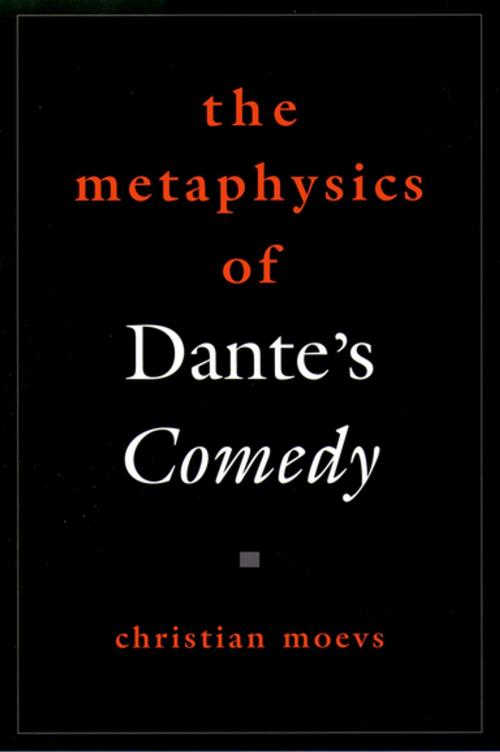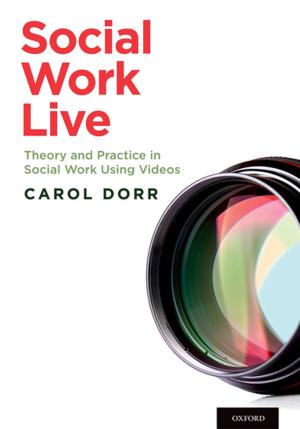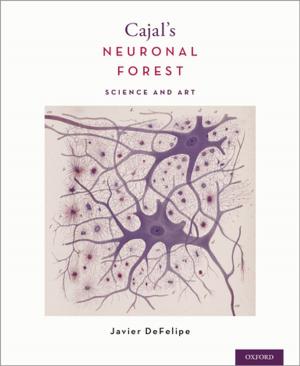THe Metaphysics of Dante's Comedy
Nonfiction, Religion & Spirituality, Philosophy, Metaphysics, Religious| Author: | Christian Moevs | ISBN: | 9780199884032 |
| Publisher: | Oxford University Press | Publication: | March 17, 2005 |
| Imprint: | Oxford University Press | Language: | English |
| Author: | Christian Moevs |
| ISBN: | 9780199884032 |
| Publisher: | Oxford University Press |
| Publication: | March 17, 2005 |
| Imprint: | Oxford University Press |
| Language: | English |
Dante's metaphysics--his understanding of reality--is very different from our own. To present Dante's ideas about the cosmos, or God, or salvation, or history, or poetry within the context of post-Enlightenment presuppositions, as is usually done, is thus to capture only imperfectly the essence of those ideas. The recovery of Dante's metaphysics is essential, argues Christian Moevs, if we are to resolve what has been called "the central problem in the interpretation of the Comedy ." That problem is what to make of the Comedy 's claim to the "status of revelation, vision, or experiential record--as something more than imaginative literature." In this book Moevs offers the first sustained treatment of the metaphysical picture that grounds and motivates the Comedy , and of the relation between those metaphysics and Dante's poetics. He carries this out through a detailed examination of three notoriously complex cantos of the Paradiso , read against the background of the Neoplatonic and Aristotelian tradition from which they arise. Moevs finds the key to the Comedy 's metaphysics and poetics in the concept of creation, which implies three fundamental insights into the nature of reality: 1) The world (finite being) is radically contingent, dependent at every instant on what gives it being. 2) The relation between the world and the ground of its being is non-dualistic. (God is not a thing, and there is nothing the world is "made of") 3) Human beings are radically free, unbound by the limits of nature, and thus can find all of time and space within themselves. These insights are the foundation of the pilgrim Dante's journey from the center of the world to the Empyrean which contains it. For Dante, in sum, what we perceive as reality, the spatio-temporal world, is a creation or projection of conscious being, which can only be known as oneself. Moevs argues that self-knowledge is in fact the keystone of the Aristotelian and Neoplatonic philosophical tradition, and the essence of the Christian revelation in which that tradition culminates. Armed with this new understanding, Moevs is able to shed light on a series of perennial issues in the interpretation of the Comedy . In particular, it becomes clear that poetry coincides with theology and philosophy in the poem: Dante poeta cannot be distinguished from Dante theologus .
Dante's metaphysics--his understanding of reality--is very different from our own. To present Dante's ideas about the cosmos, or God, or salvation, or history, or poetry within the context of post-Enlightenment presuppositions, as is usually done, is thus to capture only imperfectly the essence of those ideas. The recovery of Dante's metaphysics is essential, argues Christian Moevs, if we are to resolve what has been called "the central problem in the interpretation of the Comedy ." That problem is what to make of the Comedy 's claim to the "status of revelation, vision, or experiential record--as something more than imaginative literature." In this book Moevs offers the first sustained treatment of the metaphysical picture that grounds and motivates the Comedy , and of the relation between those metaphysics and Dante's poetics. He carries this out through a detailed examination of three notoriously complex cantos of the Paradiso , read against the background of the Neoplatonic and Aristotelian tradition from which they arise. Moevs finds the key to the Comedy 's metaphysics and poetics in the concept of creation, which implies three fundamental insights into the nature of reality: 1) The world (finite being) is radically contingent, dependent at every instant on what gives it being. 2) The relation between the world and the ground of its being is non-dualistic. (God is not a thing, and there is nothing the world is "made of") 3) Human beings are radically free, unbound by the limits of nature, and thus can find all of time and space within themselves. These insights are the foundation of the pilgrim Dante's journey from the center of the world to the Empyrean which contains it. For Dante, in sum, what we perceive as reality, the spatio-temporal world, is a creation or projection of conscious being, which can only be known as oneself. Moevs argues that self-knowledge is in fact the keystone of the Aristotelian and Neoplatonic philosophical tradition, and the essence of the Christian revelation in which that tradition culminates. Armed with this new understanding, Moevs is able to shed light on a series of perennial issues in the interpretation of the Comedy . In particular, it becomes clear that poetry coincides with theology and philosophy in the poem: Dante poeta cannot be distinguished from Dante theologus .















